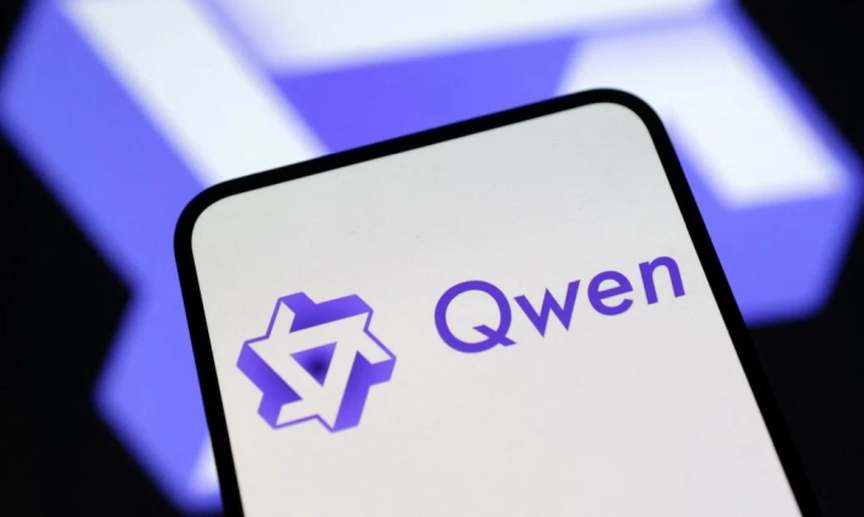Alibaba’s Qwen AI app hits 10 million downloads in one week as the global AI race heats up

Alibaba’s AI-first pivot starts paying off as Qwen surges and investors take notice
Alibaba didn’t tiptoe into the AI assistant race. It came in loud.
Its revamped Qwen app just crossed 10 million downloads in one week after entering public beta on November 17, a pace that puts it among the fastest-adopted AI products to ever launch in China. The milestone was confirmed in a WeChat post and quickly became one of the clearest signals yet that Alibaba’s pivot into consumer-facing AI is starting to connect.
Announcing the milestone on X, Alibaba said, “10,000,000 users creating with Qwen Chat — and we’re just getting started.”
For a company often defined by e-commerce and cloud infrastructure, Qwen marks something different. It’s Alibaba’s direct bet on becoming the daily interface between people and intelligent systems. It’s not just another chatbot. It’s the company making a serious play to become China’s default AI assistant in a market where ChatGPT and Gemini remain inaccessible.
“Alibaba Group Holding Ltd.’s Qwen app drew more than 10 million downloads in the week after its relaunch, boding well for a longer-term effort to build a rival to OpenAI’s ChatGPT,” Bloomberg reported.
The market reacted quickly. Alibaba’s Hong Kong-listed shares climbed more than 5%, closing at HK$154.50 on Monday, as investors responded to fresh evidence that the company’s AI strategy can translate into real consumer traction — not just cloud infrastructure, research papers, or enterprise demos. Analysts at China Everbright Securities International described Qwen as a turning point in Alibaba’s comeback cycle, even calling it potentially “China’s WeChat for the AI era,” a comparison that carries real weight inside the country’s tech ecosystem.
The milestone came six months after Alibaba launched Qwen3, its boldest open-source AI response to U.S. models yet.
China’s answer to ChatGPT? Alibaba’s Qwen reaches 10 million downloads in one week

This surge didn’t happen by accident. Earlier this month, Alibaba pulled its scattered AI efforts into a single brand. The former Tongyi Qianwen chatbot and AI features inside the Quark browser were folded into a unified experience with a refreshed identity. The company positioned it as “the best personal AI assistant with the most powerful model,” backed by its open-source Qwen family of large language models.
Those models already have a global footprint. Since the original series launched in 2023, the Qwen family has been downloaded more than 600 million times worldwide, making it one of the most widely adopted open-source AI model lines on the planet. Support has even come from outside China’s tech bubble, with figures like NVIDIA CEO Jensen Huang and Airbnb CEO Brian Chesky praising the underlying technology.
What makes Qwen compelling to users is its range. It handles text, images, audio, and video. It can generate full research reports and convert a simple prompt into a polished PowerPoint presentation. Voice input lets users talk through tasks. Camera access makes real-time analysis possible. Developers have even started testing it for coding assistance as a low-cost alternative to Western tools.
Alibaba is laying out an ambitious path for the product. In its long-term vision, Qwen becomes an “everything app,” tying together navigation, food delivery, travel booking, shopping on Taobao, office tools, education support, and health guidance. Step by step, features will roll out that allow the AI to execute full workflows on a user’s behalf, starting with smart shopping integrations inside Taobao to personalize discovery and simplify purchase decisions.
That vision sits on top of heavy investment. Alibaba plans to spend at least 380 billion yuan, about $53 billion, over the next three years on AI and cloud infrastructure. Qwen is the public-facing tip of that spending strategy. By offering the app for free rather than charging subscriptions like its Western rivals, Alibaba is betting on scale, habit formation, and ecosystem lock-in through its network of more than one billion users across platforms such as Alipay and Taobao.
All of this is happening inside one of the most competitive AI environments in the world.
China now has more than 200 large language models vying for relevance. The AI cloud market alone is expected to exceed $7.3 billion by 2025. Alibaba leads in cloud AI with a 35.8% share, but consumer assistants are a wide-open fight.
Baidu’s Ernie Bot was an early leader, boosted by deep search integration, yet it has started to lose ground in mobile usage. ByteDance’s Doubao chatbot, released in May 2024, has surged ahead with ultra-cheap processing rates that can crunch well over a million Chinese characters for just a few cents. Tencent has leaned on WeChat’s massive user base to push Yuanbao, its own AI assistant built on the Hunyuan model, driving massive growth simply through distribution. Huawei focuses on industry-specific deployments for sectors like finance and weather forecasting. Startups such as DeepSeek are drawing attention for shipping open models that compete with GPT-4 performance at a fraction of the cost.
The price war reflects how intense this moment is. Alibaba has cut Qwen’s usage costs by as much as 97%. Baidu has released free entry-level versions of Ernie. ByteDance is spending more than 150 billion yuan in AI capital expenditures for 2025 alone, rivaling the combined investment of some of its biggest domestic competitors. This isn’t just a product battle. It’s a race for national technology leadership.
There are real obstacles ahead for Alibaba.
Turning downloads into daily, habitual use remains a challenge. No AI app in China has crossed 100 million daily users yet, so the bar for long-term engagement is still high. Regulations are strict. Chinese authorities require heavy filtering and data oversight, and early tests show Qwen refusing politically sensitive topics such as Taiwan’s status or the events of 1989 in Beijing. That level of restriction could limit trust for certain user segments.
Chip export controls from the U.S. add another layer of friction. Access to advanced hardware is restricted, which slows scaling. At the same time, the open-source strategy has allowed Qwen to circulate far beyond China, even finding use in Western companies such as Amazon for robotics simulations and AI testing environments.
Monetization is still unanswered. There is no paid tier on the roadmap yet. Alibaba appears to be playing a longer game, aiming for volume, integration across its platforms, and eventual revenue through services, ads, and enterprise tie-ins. An international version is expected at a later stage, though that will carry its own political and regulatory hurdles.
Even inside Alibaba’s orbit, momentum is building. Ant Group’s LingGuang app, another AI assistant tied to the ecosystem, crossed one million downloads in four days. That signals coordinated execution across the broader Alibaba family.
Qwen’s rise is more than a headline number. It shows how quickly domestic alternatives can scale when global competitors are locked out. It highlights China’s ability to build parallel AI ecosystems at speed. And for global investors and founders, it’s a reminder that the next defining AI platforms will not all come from Silicon Valley.
This isn’t just a local win for Alibaba. It’s a shift in the balance of where influence and innovation are forming in AI — and Qwen just announced itself as a serious player in that story.





